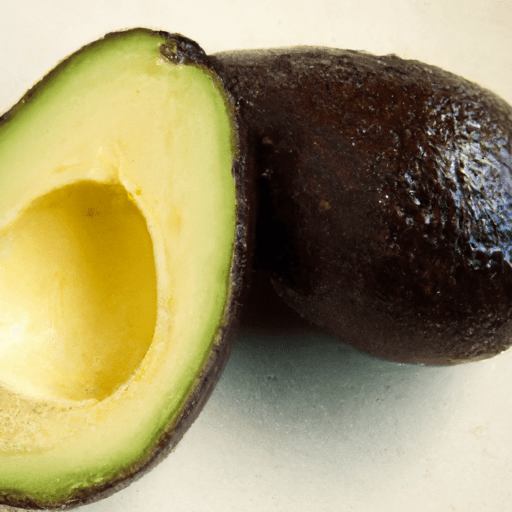Exploring the Wonder of Avocados: A Versatile Superfood
Avocados have taken the culinary world by storm in recent years, becoming a staple in kitchens worldwide. With their rich, creamy texture, unique taste, and plethora of health benefits, it’s no wonder that avocados have become a favorite among food enthusiasts. In this article, we will delve into the world of avocados, exploring their taste, common culinary uses, nutritional value, and intriguing history.
A Taste of Creamy Perfection
One bite of an avocado, and you’ll experience a delightful combination of flavors. Avocados have a rich, buttery taste that is often described as slightly nutty or even faintly sweet. Their smooth, creamy texture is incredibly satisfying, making them a perfect addition to a variety of dishes.
Versatile in the Kitchen
Avocados are remarkably versatile, lending themselves to a myriad of culinary creations. They can be enjoyed in their purest form, simply sliced and sprinkled with a pinch of salt, or mashed to create a luxurious guacamole. Avocado’s creamy consistency is also perfect for spreading on toast, adding a healthy and delicious twist to breakfast or a light snack. Furthermore, avocados can be blended into smoothies for an extra creamy texture, incorporated into dips, salads, or even used as a substitute for butter or oil in baking recipes.
Nutritional Powerhouse
Not only are avocados a culinary delight, but they also bring an impressive range of nutrients to the table. They are rich in healthy monounsaturated fats, known to promote heart health and aid in the absorption of essential nutrients. Avocados are also a great source of vitamins C, E, and K, as well as B-vitamins, potassium, and dietary fiber. These nutrient-packed fruits are not only delicious but also provide a multitude of health benefits, including improved digestion, reduced risk of chronic diseases, and enhanced skin health.
A Glimpse into Avocado’s History and Interesting Facts
Avocados have a fascinating history, dating back thousands of years. They are believed to have originated in Central and South America, with evidence of their cultivation traced back to ancient civilizations such as the Aztecs and Mayans. Interestingly, the word “avocado” comes from the Aztec term “ahuacatl,” which also means “testicle,” a nod to its shape.
Avocado trees thrive in subtropical and tropical climates, and today, they are cultivated in various parts of the world. Mexico remains the largest producer of avocados, but they are also grown in California, Florida, and several countries in South America.
Aside from their vibrant culinary presence, avocados have also made their mark in popular culture. The famous avocado toast trend took social media by storm, with countless variations and creative interpretations flooding our screens. Moreover, avocados have become a symbol of healthy eating and are often associated with trendy, nutritious lifestyles.
Conclusion
Avocados are a true delight for the taste buds, providing a unique and luxurious experience in every bite. Their creamy texture, rich taste, and impressive nutritional value make them one of the most beloved superfoods around the world. So whether you’re spreading them on toast, tossing them in a salad, or enjoying them as a dip, avocados are a versatile ingredient that never fails to impress. Embrace the wonder of avocados and let your culinary creations soar to new heights!
Avocado
- Origin: Avocado (Persea americana) is a fruit that originated in south-central Mexico around 5,000 BC. It is believed to have been cultivated by the Aztecs and Maya civilizations.
- Common Uses: Avocados are widely used in various cuisines around the world. They are commonly used to make guacamole, a popular Mexican dip. Avocados are also used in salads, sandwiches, sushi rolls, smoothies, and as a topping for various dishes.
- Nutritional Benefits: Avocados are a nutrient-dense fruit. They are a good source of healthy monounsaturated fats, which can help reduce bad cholesterol levels. Avocados also provide dietary fiber, vitamins (such as vitamin K, vitamin C, vitamin E, and B vitamins), and minerals (such as potassium and magnesium). They are relatively low in sugar and contain no cholesterol.
- Unique Properties: Avocados are unique among fruits because they are one of the few fruits that contain a significant amount of fat. The fat in avocados is mostly monounsaturated and considered to be heart-healthy. Avocados also have a creamy texture and a mild, buttery flavor.
- Historical Significance: Avocados have a long history and cultural significance in Mexico and other Central and South American countries. In fact, the word “avocado” originates from the Nahuatl (Aztec) word “ahuacatl,” which means “testicle.” The shape of the fruit was believed to resemble testicles, and avocados were considered to be an aphrodisiac by the Aztecs.




Use the share button below if you liked it.
It makes me smile, when I see it.